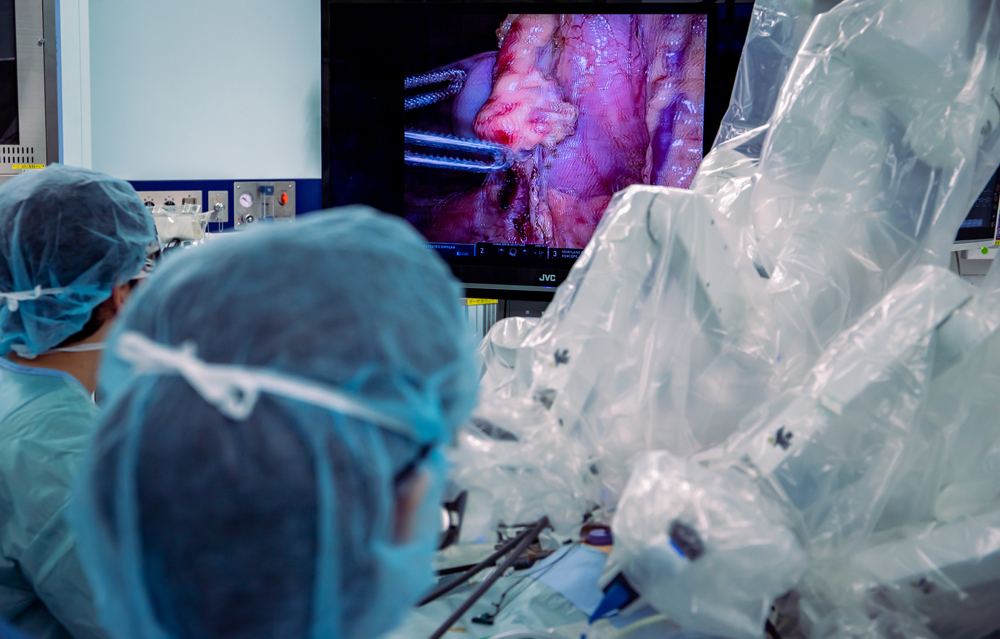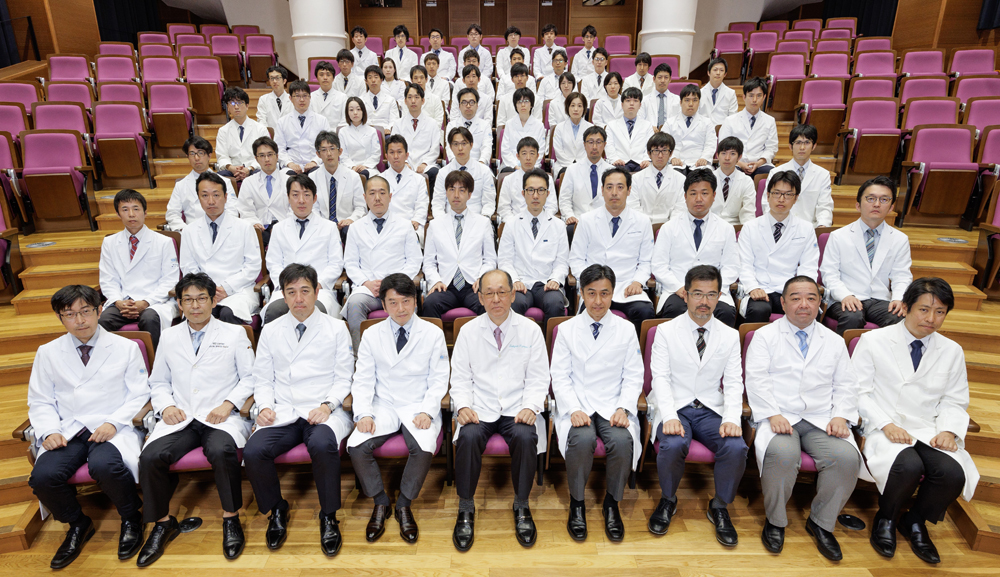Message from the Director of the Department
In gastrointestinal surgery, we treat both malignant and benign tumors in organs such as the esophagus, stomach, duodenum, small intestine, colon, and rectum. While surgeries used to be performed via open abdominal or thoracic procedures, they have evolved over time to laparoscopic surgery, and more recently, to robotic surgery. By using these advanced techniques, we aim to improve the prognosis for malignant diseases while preserving organ function. In addition to surgery, we actively conduct clinical trials and chemotherapy treatments for cancer.

Director,
Department of Gastroenterological
SurgeryToshiyoshi Fujiwara
Scope of Target Diseases
- Esophagus: Malignant tumors such as esophageal cancer, benign tumors like leiomyomas, and benign functional disorders such as hiatal hernia.
- Stomach: Malignant tumors including gastric cancer and GIST (gastrointestinal stromal tumors), benign tumors like gastric mucosal tumors, and surgery for obesity.
- Colon: Malignant tumors such as colon and rectal cancer, GIST, inflammatory bowel diseases (ulcerative colitis, Crohn's disease), and anal conditions (hemorrhoids, rectal prolapse).
- Others: Emergency conditions such as acute cholecystitis and acute appendicitis, and ACNES (anterior cutaneous nerve entrapment syndrome).
Features and Description of Medical Care

Esophagus: We perform a high number of esophageal cancer surgeries with excellent treatment outcomes. For this typically invasive surgery, we are leaders in adopting minimally invasive techniques (laparoscopic and robotic surgery) and aim to standardize these methods. We treat a wide range of cases, from early to advanced cancer, tailoring our approach to each patient's condition. This may involve surgery first or a combination of chemotherapy and radiation therapy.
Stomach: Over 90% of our gastric cancer surgeries use minimally invasive techniques (laparoscopic and robotic surgery), and we strive to preserve as much of the stomach as possible. For advanced cancer, we use pre- and post-operative chemotherapy to improve treatment outcomes. Even if initially diagnosed with inoperable advanced gastric cancer, we pursue aggressive chemotherapy to shrink tumors and frequently perform subsequent conversion surgeries.
Colon: We actively use minimally invasive techniques (laparoscopic and robotic surgery) for colon cancer. For rectal cancer near the anus, we perform hybrid surgeries with two teams working from both the abdominal and anal sides. For inflammatory bowel diseases, which often affect younger patients, we focus on minimally invasive, function-preserving surgeries.
About the Reserch
In our department, we conduct a wide range of clinical and basic research. While these studies may seem independent, they are all interconnected, forming a cohesive translational research effort. Each study contributes to the larger goal of continuous scientific advancement.
Medical Treatment Results
For more details, please visit our department's website.(
http://ges-okayama-u.com/)
Staff

 Esophagus: We perform a high number of esophageal cancer surgeries with excellent treatment outcomes. For this typically invasive surgery, we are leaders in adopting minimally invasive techniques (laparoscopic and robotic surgery) and aim to standardize these methods. We treat a wide range of cases, from early to advanced cancer, tailoring our approach to each patient's condition. This may involve surgery first or a combination of chemotherapy and radiation therapy.
Esophagus: We perform a high number of esophageal cancer surgeries with excellent treatment outcomes. For this typically invasive surgery, we are leaders in adopting minimally invasive techniques (laparoscopic and robotic surgery) and aim to standardize these methods. We treat a wide range of cases, from early to advanced cancer, tailoring our approach to each patient's condition. This may involve surgery first or a combination of chemotherapy and radiation therapy.